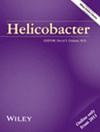The Systemic Impact of Helicobacter pylori Infection on the Microbiome of Whole Digestive Tract Based on Mucosal, Gastric Juice, and Fecal Specimens
Abstract
Background
Recent studies have found that in addition to directly impacting the gastric microbiome, Helicobacter pylori (H. pylori) infection may cause intestinal microbial dysbiosis. However, most existing studies on the influence of H. pylori infection on the intestinal microbiome used fecal specimens with inconsistent conclusions. Only one limited study on 8 H. pylori-infected patients has previously assessed the impact of H. pylori infection on the microbiome of the entire gastrointestinal tract, finding no significant effect on the bacterial composition of the lower gastrointestinal tract.
Methods
This single-center cross-sectional study collected mucosa of the esophagus, stomach, small intestine, and colon, as well as gastric juice and feces from 120 participants of the H. pylori-infected group (HIG) and 30 of the healthy control group (HCG). 16S rRNA sequencing was applied to analyze the bacterial composition and functional pathways, and metagenomics was adopted to assess the composition of viruses, eukaryotes, and archaea in the feces, as well as the antibiotic resistance gene (ARG) and virulence factors of bacteria (VF).
Results
Compared with the HCG, the alpha and beta diversity of bacteria in the mucosa of the whole digestive tract and the gastric juice of the HIG showed significant changes, with increased microbial dysbiosis index and significantly different compositions at the phylum and genus levels. Functional pathway analysis revealed that the metabolic characteristics of the flora changed in the HIG, with site-specific differences. Fecal specimens demonstrated no significant differences in the above indicators between the two groups. In addition, feces-based metagenomic analysis revealed that only eukaryotes had higher diversity in the HIG, whereas viruses and archaea showed no significant changes; the Shannon index of ARG increased; and VF showed no significant change.
Conclusions
This study revealed that H. pylori infection significantly influenced the diversity, composition, and metabolic functional pathway of bacteria in different parts of the digestive tract and the gastric juice. Moreover, fecal microbial composition may not fully represent the mucosal microbial composition of the gastrointestinal tract.
Trial Registration
Chinese Clinical Trial Registry: ChiCTR2300073419

 求助内容:
求助内容: 应助结果提醒方式:
应助结果提醒方式:


